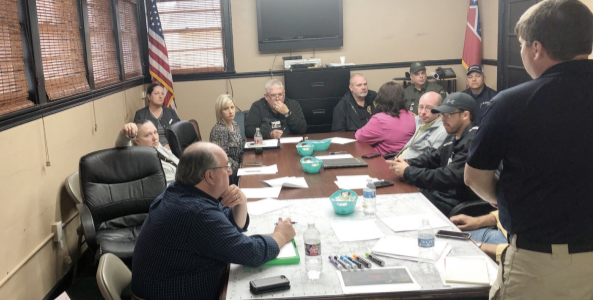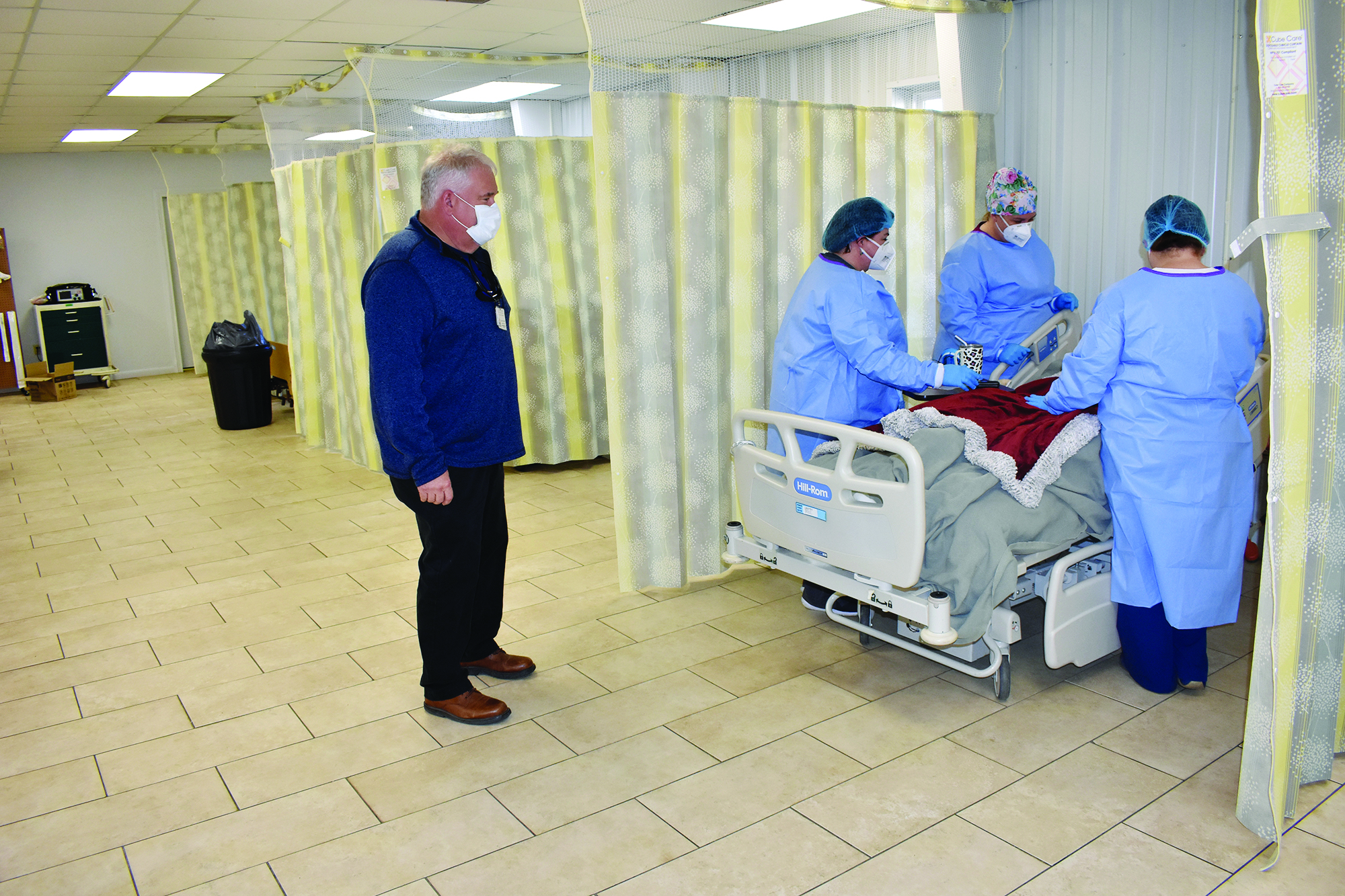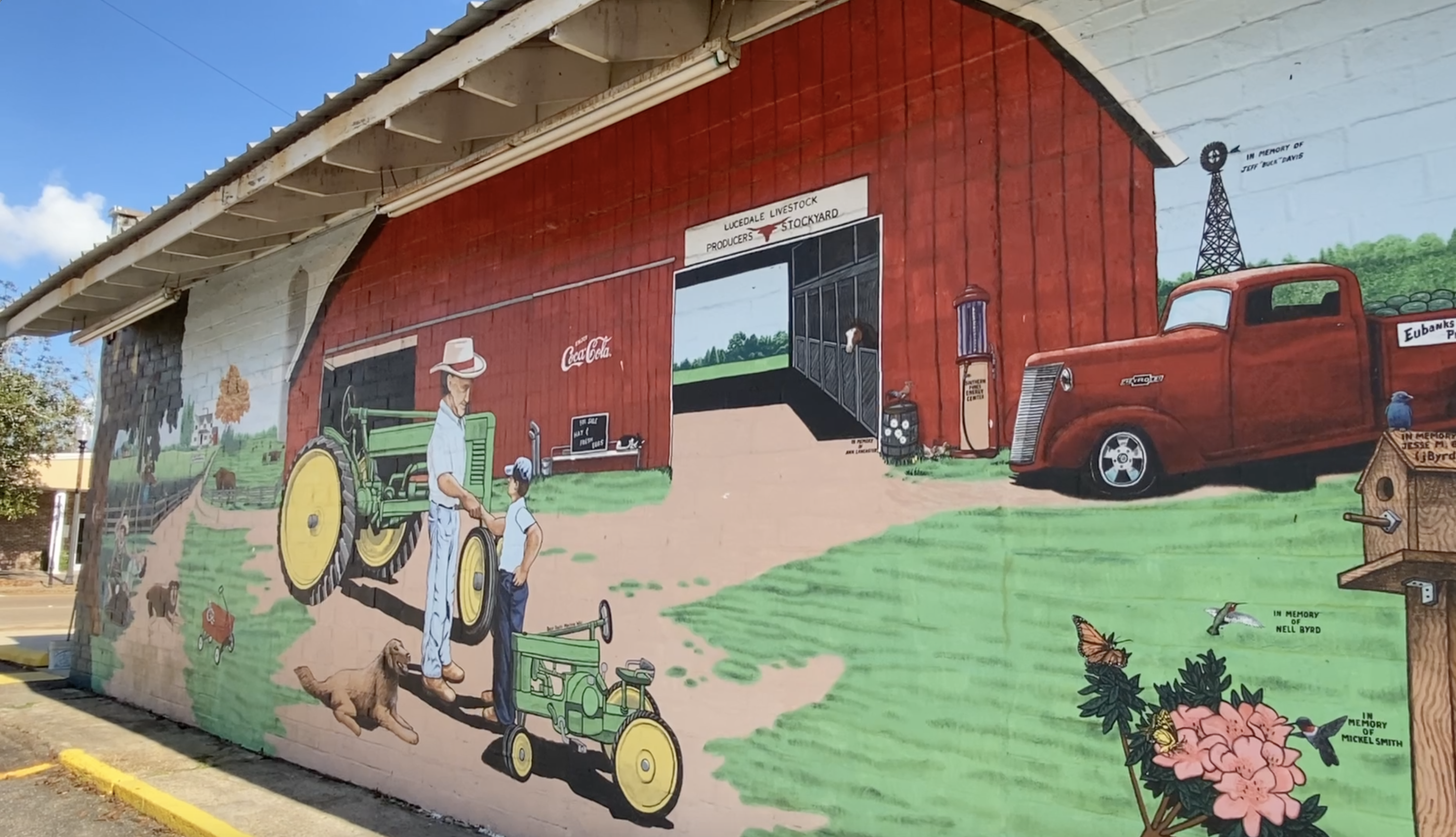by Hayden Wiggs and Madeleine Nolan
LEAKESVILLE, MS – As the rest of the country grappled with the burgeoning COVID-19 pandemic and the virus’s arrival in the United States, the small principality of Leakesville, Mississippi was more prepared than anyone, thanks to the preemptive planning of Trent Robertson, the Greene County Director of Emergency Management. A history and international news enthusiast, Robertson was one of the first in the state (perhaps even the country) to fully investigate the virus’s emergence in Wuhan, China.
“One of the major things of being a good Emergency Manager is situational awareness,” Robertson explained. “Knowing your environment, not only on a local level, but on a state level, a federal level, and on a global level.”
Robertson went on to describe himself as one of those “weird guys” that spends their evening watching foreign news; however, this so-called strange habit would prove to be life-saving as in the second week of January 2020, Robertson began hearing reports of a “pneumonia” coming out of the Hubei province in southeast China. The news did not strike Robertson as worrisome at first — but then, he began to notice something odd.
“They did not know what [the virus] was at the time, but it was believed to be some type of coronavirus and that it had killed 30-something people,” he said, “but they were building three 1,500-bed hospitals. And I said, this doesn’t make sense. Something’s not right. There’s something bigger to this story. You don’t build large field hospitals if you’ve only got 30 people that have succumbed to a virus.”
Robertson continued to keep tabs on the growing crisis, reading every news report that came out of China. All the while, he warned those in his community to get informed and begin making preparations, to little or no avail.
“Convincing someone of something they have never experienced… It was a real challenge,” Robertson admitted. “It was heartbreaking, because I knew that I was going to lose a lot of friends to this and I couldn’t convince them of the magnitude of it.”
Robertson even met with the Board of Supervisors and shared his concerns surrounding a virus that had not yet been named.
“They looked at me like, ‘what is this guy thinking? That’s in China. We’re in Greene County, Mississippi. How is that going to affect us?’” Robertson said. “But, knowing how pandemics work, they don’t just stay within the boundaries of one country. With how much we travel nowadays, it went global. And, if you want to know what the future holds, look no further than the past.”
By the end of January, as things were only getting worse, Robertson “knew we were in trouble” and began making preparations, using his extensive knowledge of the 1918 Spanish flu epidemic as a guide for what steps he should take to aid his rural community.
A Richton, Mississippi native, Robertson knows just how important community is in small, rural towns. After years of working on Air Force bases and building “crash fire” training facilities, Robertson returned to the Delta and found his love of emergency services through a volunteer firefighting program.
“That was a turning point in my life,” Robertson said. “I wanted to learn a little bit about everything.”
His list of skills is extensive and impressive, boasting achievements such as EMT, firefighting, scuba diving, law enforcement, and ham radio certifications, as well as a degree from the police academy. Robertson assumed his position as the Greene County Director of Emergency Management just after 2005’s Hurricane Katrina, “the worst time anybody could ever want to become an Emergency Management director.”
“I was baptized by fire, for lack of a better term,” he said. “It just made me more resilient.”
This resilience and dedication to his community would lead Robertson on a mission to educate his surrounding town and county about the rise of the COVID-19 pandemic.
In an instance of eerie fortune-telling, Robertson began writing a fictional essay in February 2020; the essay, which consisted of four pages of an imagined pandemic timeline, would end up predicting many of the outcomes of the COVID-19 crisis. This essay was used as the basis for a March 5 tabletop exercise, led by Robertson, that urged Leakesville community members to brainstorm how they would react to an event of such proportions. The 29 people who were in attendance, many of whom were hospital administrators, medical professionals, and nursing home staff, engaged in a discussion that would end up being vital in the town’s COVID-19 response plan.
[infogram id=”timeline-dark-infographic-1hxr4zx9nmzko6y?live”]

Greene County EMA Trent Robertson is shown leading the tabletop exercise at his office in Leakesville, MS on March 5th, 2020. Public safety personnel, healthcare officials, and others participated in this event.
“One of the things that we discussed was setting up a field hospital,” said Robertson. “I decided, ‘why not the community center?’ It has showers, bathrooms. We have a very small hospital here, only 6 or 8 beds. It wouldn’t take much to overwhelm us. So, we started laying the groundwork for setting up a field hospital. Never in a million years would we have imagined that, on March 5, 2020, we would have used that hospital a few months later.”
The Leakesville Community Center, which sits at 1623 Center Street, is a small, metal building constructed in 1996 and renovated in 2007. Its original purpose was to host events and provide a place for townspeople to gather; now, its folding chairs are being used at bedsides and its cabinets are filled with PPEs as Robertson and Greene County Hospital staff transformed the small space into a field hospital and later, an infusion center.

Outside of the Greene County community center.
Richard Daughdrill, the Greene County Hospital Administrator, played a large part in bringing Robertson’s vision to life. To Daughdrill, the community center hospital is a source of pride, and he conducted a brief tour of the property with an air of gratitude and relief. As he ducked under plastic partitions, all of which were held together with duct tape, he pointed out the different areas of the center and described their purpose.

Inside of the community center, where three nurses along with Greene County Hospital administrator Richard Daughdrill helps Covid-19 patient.
“We had areas for COVID testing that we later segregated after we started doing infusions,” Daughdrill explained. “The restrooms were used for our staff to come in and dress out before going to treat their patients. Right now, because we are doing infusions, we have recliners set up, but before, when we were quarantining patients, these were hospital beds.”
A nurse’s center was set up in the center of the room, complete with a computer system connected to the one at the Greene County Hospital, just a mile or so up the road. Patients were able to check in and access their records with ease, erasing a barrier that may have prevented people from getting care at an off-site facility. Only one problem initially arose, and that was the ability to create separate hospital rooms within the main space.
“We used our Southern ingenuity and decided we were going to use polyethylene or whatever we had to do to separate the patients,” Robertson explained. “Actually, the hospital wound up getting an official kit or package to build those individual rooms inside of the community center, so it was set up very professionally before we even needed it.”
At its peak, the field hospital was seeing almost 60 to 80 people, a combination of nursing home patients and positive COVID-19 cases a day. When one compares that to the minute population of Leakesville (a community that Robertson estimated to be about 1,000 residents), this is an impressive number. According to Daughdrill, the hospital’s flow and efficiency helped to prevent a catastrophic spread through the community.
“I’m very proud of what we were able to accomplish here,” said Daughdrill. “And Trent is a really great guy. He helped a lot of people with this.”
More of Robertson’s efforts included obtaining a shipment of N-95 masks before the nationwide shortage took effect.
“We were in charge of all the personal protective equipment and N-95 masks were like gold; you couldn’t get your hands on them. I saw some of them selling on the Internet for $80 to $95 a piece. We’re talking about a $2 mask here. So, before we even had any cases in the United States, I ordered a bunch of them,” Robertson said. “This was an insurance plan that I had.”
Because of this preemptive move, Robertson was able to provide all of Greene County’s healthcare workers with an N-95 mask; the extras were sent to surrounding communities so that they too could protect themselves from the virus.
“We didn’t hoard them,” said Robertson. “We shared.”
These exhaustive efforts began taking their toll on Robertson, especially as the pandemic progressed; however, he refused to give up on his community, even as things began looking bleak. For Robertson, who lost many of his close friends to the COVID-19 virus, his duty to Leakesville was of the utmost importance, and he could not shy away from it.
“My wife finally told me one day, she said ‘you’ve got to let this go. I’m not telling you to stop doing what you’re doing, but you’ve got three kids you’ve got to raise, and you’re gonna wind up having a heart attack because you’re so stressed out,’” Robertson said. “She said, ‘you’ve got to just do what you can and people are going to believe what they’re going to believe.’ But I wasn’t going to give up. I’m going to keep doing what I’m doing because I know people’s lives depend on it.”

